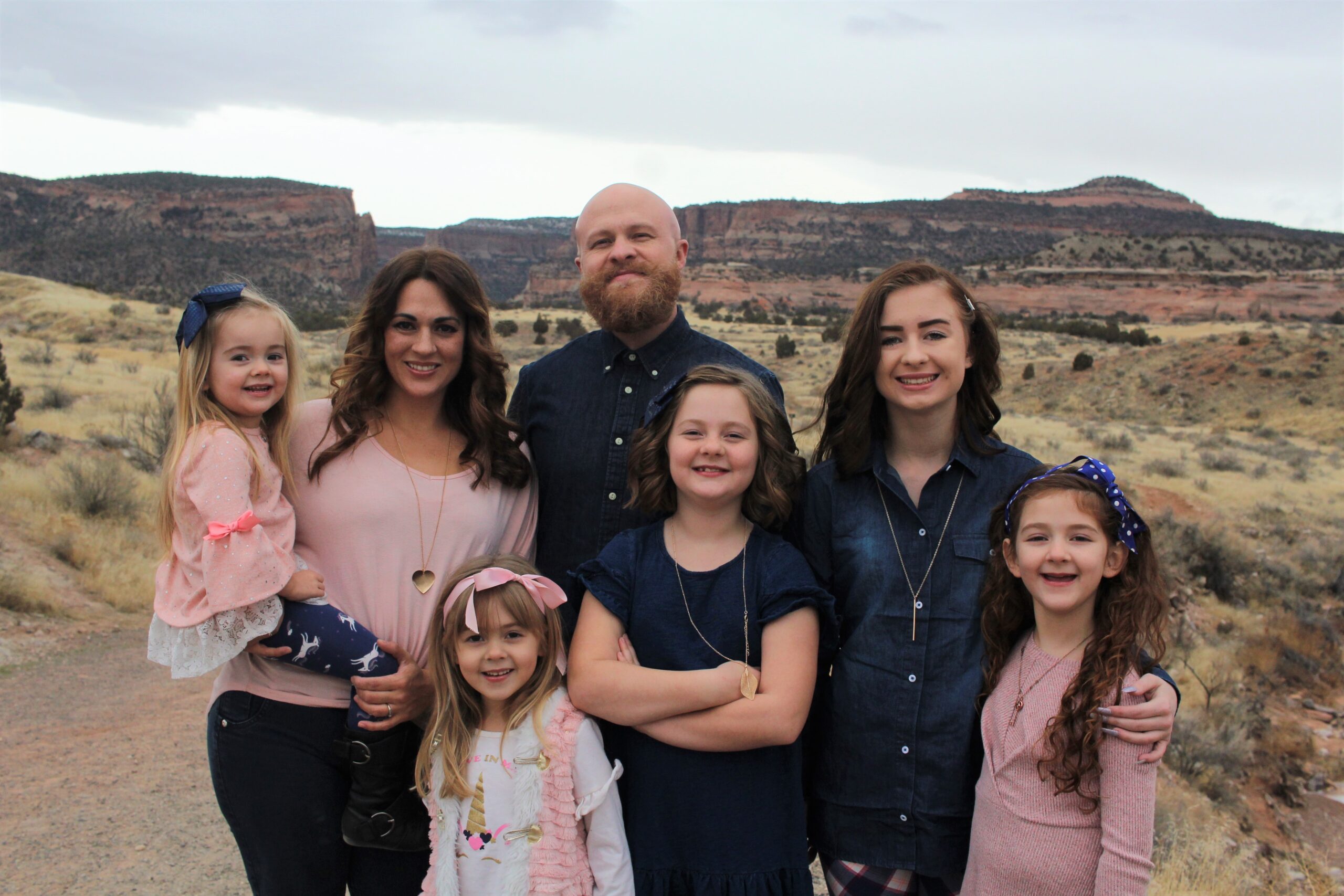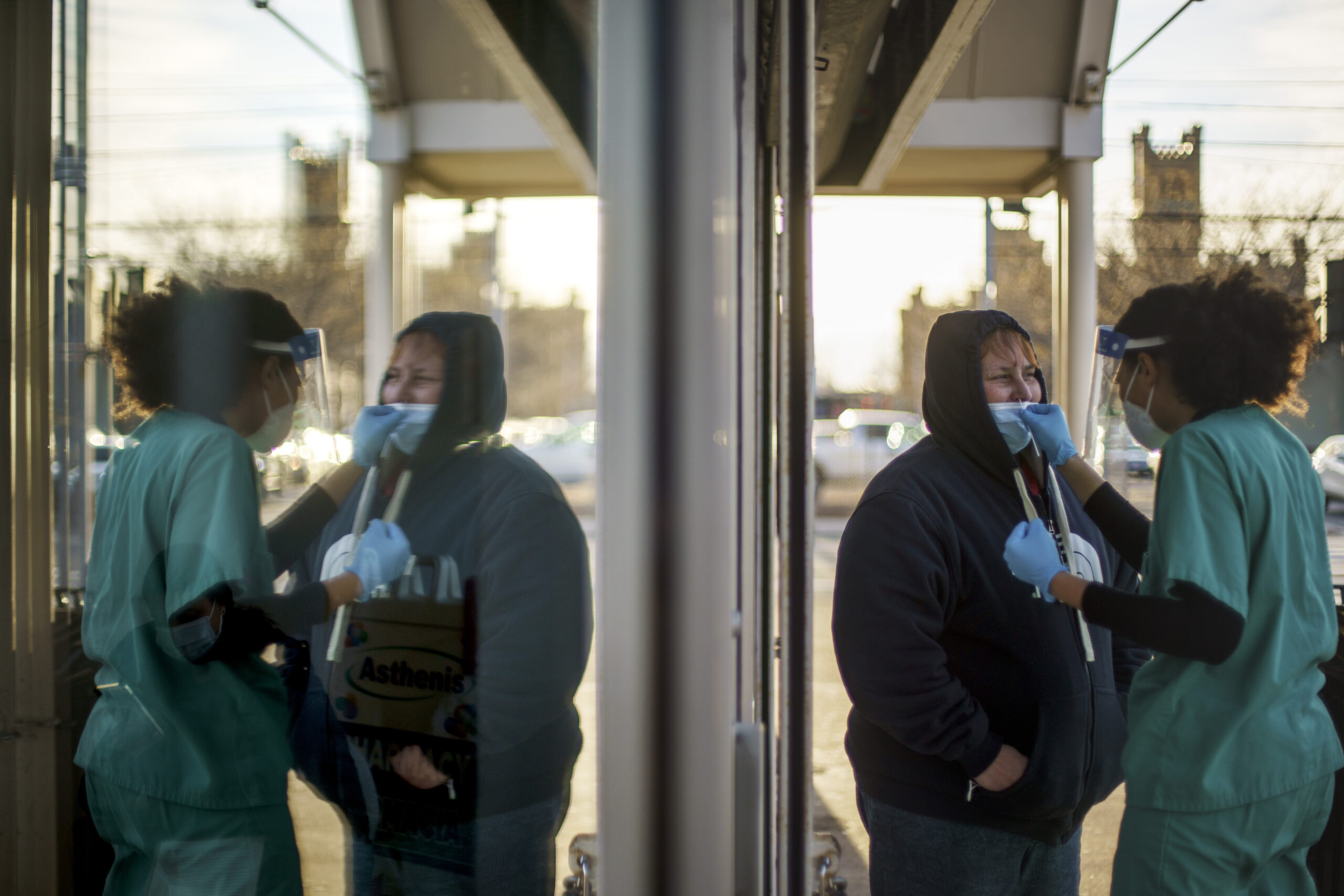‘Like I’m A Walking Disease’: Health Care Workers’ Mental Health During The Pandemic

Caleb DeLong, seen here with and wife, Melissa, and their daughters, is an EMT at Piedmont Hospital. While, he says, he appreciates the support healthcare workers are getting from their communities, the job is taking it’s toll as the coronavirus pandemic persists.
Courtesy of Caleb DeLong
Health care workers are under incredible pressure, as COVID-19 cases increase. They’re risking their own health and lives to help others. And that can exact a toll on mental health, too.
“One day we’re just talking about this spreading from Wuhan and slowly into Washington, and then within a week we’re getting our own cases, and just scrambling to understand how we need to protect ourselves,” says Caleb DeLong, an EMT at Piedmont Hospital.
“It’s like watching a huge storm come your way. Not knowing what it’s fully going to bring in terms of intensity, know you know it’s coming,” he says. “It feels like we are on the edge.”
Read more: “What Now? Telling Stories About Work And The Coronavirus >>
DeLong, who trained as a combat medic and is a month away from finishing nursing school, says he’s been thinking about the story of a nurse in Italy who killed herself after contracting COVD-19. It made him want to talk about the pandemic’s emotional impact on nurses.
“Don’t get me wrong, all of the nurses and everybody deeply appreciates the amount of support that the community has given to us, when we see people out on their balconies at night cheering for us; when McDonald’s dropped off breakfast and dinner for all of us in our breakroom; when our family members tell us, ‘Thank you so much for all you do.’ We deeply appreciate that,” he says.
But, he says, when he goes to the grocery store before work, wearing his scrubs, “it’s like watching oil hit water, you just see people spreading from you.”
He says he understands, but it hurts.
“And then to top it off, ever since this has begun, I’ve had nightmares every night in fear that I’m afraid I’m going to give it to somebody. I could potentially give this to my wife and kids,” he says. “In the store, maybe I’m the asymptomatic carrier that’s spreading this around.”
“It’s like I’m a walking disease that nobody wants to be around,” he says.
DeLong says he knows that those emotions are valid, but they have to go on the backburner, in order to take care of people.
“We’re doing the best we can with what we have to fight this new war that we’re facing,” he says. “This war has definitely taken its emotional toll on all those that are fighting it.”
He says he’s grateful for the support people have offered for medical workers. And he suggests that people give people they know in healthcare a call, and just check on them, and see if they want to talk about anything. “Don’t let all these nurses bottle all this up at the end of the day.”
The American Medical Association has resources on its website for supporting health workers’ mental health.
If you or someone you know is in crisis, you can call the National Suicide Prevention Line at 1-800-273-8255. There are also resources on that website for emotional wellbeing during COVID-19.
Engagement at WABE is powered, in part, by our collaboration with America Amplified, a Corporation for Public Broadcasting-funded initiative to use community engagement in our reporting.








